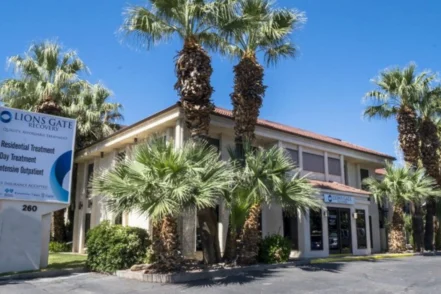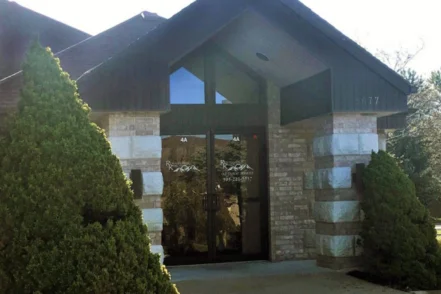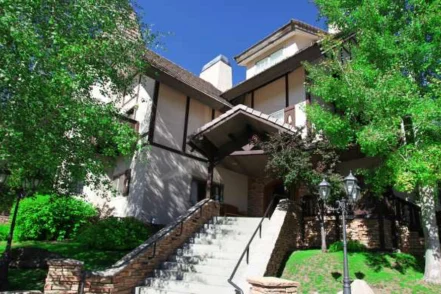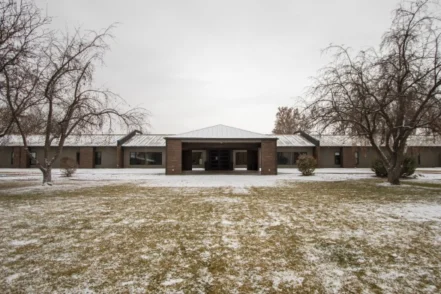About Provo Canyon School Springville Campus
Provo Canyon School Springville Campus is a comprehensive addiction treatment center that offers a wide range of services to help individuals struggling with addiction. These services include alcohol rehab, dual diagnosis, opioid addiction, young adult rehab, men’s rehab, women’s rehab, inpatient rehab, aftercare support, cognitive behavioral therapy, dialectical behavior therapy, family therapy, group therapy, individual therapy, rational behavior therapy, recreational therapy, and trauma therapy. With so many services offered, Provo Canyon School Springville Campus is able to meet the needs of a wide variety of individuals struggling with addiction. If you or someone you know is struggling with addiction, please reach out to Provo Canyon School Springville Campus today to learn more about how we can help.
Addiction Treatment Programs
Alcohol Rehab
If you choose an alcohol rehab in Utah, you’ll receive professional treatment that will help you break free of addiction. The rehab program may use multiple approaches, including nutrition, psychology, holistic methods, and support groups. These tools help you build a substance-free lifestyle and move into long-term recovery.
Dual Diagnosis
Dual diagnosis treatment in Utah addresses both your mental health and your recovery needs. In addition to typical detox, inpatient treatment, and outpatient care, a dual diagnosis program may include medication management, additional counseling, and classes on healthy coping and other important life skills.
Opioid Addiction
If you’re struggling with opioid addiction, consider finding a treatment program in Utah. Opioid treatment programs address the mental, emotional, and relational issues that may contribute to addiction. You’ll learn to build a new support network that supports your long-term sobriety.
Young Adult Rehab
Young adult rehab programs in Utah address the unique needs of this stage of life. In addition to typical detox, inpatient treatment, and outpatient care, a young adult program may also teach clients about living independently, budgeting, having healthy relationships, parenting, and more.
Men's Rehab
A men’s rehab in Utah helps clients build same-gender friendships, overcome substance use, and learn new life skills. In addition to typical detox, inpatient treatment, and outpatient care, a men’s program may also teach clients about having healthy relationships, fatherhood, building a career, and more.
Women's Rehab
Choosing a women’s rehab in Utah helps give the support you need in overcoming addiction and learning to handle gender-specific challenges. In addition to typical detox, inpatient treatment, and outpatient care, a women’s program may also teach clients about motherhood, building a career, being safe in relationships, and more.
Insurance Coverage
Medicaid
For those who qualify for Medicaid, using your coverage to pay for treatment in Utah can make rehab more accessible. You’ll need to choose a program that accepts Medicaid as payment, and you can access multiple levels of care, including detox, inpatient, and outpatient treatment.
Private insurance
There are many ways to pay for rehab in Utah, including using private insurance. Plans vary, so contact the insurer to find out what treatment centers are in your plan’s network and to learn coverage details.
Self-pay options
In Utah one option for paying for substance use treatment is self-pay, also known as private pay. This method allows you to write a check, use a medical loan, or electronically send money to the center you prefer. The fee structure may vary depending on the level of care.
Military insurance
In Utah, military insurance is one of your options when it comes to paying for rehab if you’re a veteran or service member. Plans vary, so be sure to contact your insurer for details. You may have out-of-pocket costs such as deductibles and copays.
Financial aid
How do you pay for rehab in Utah? If you qualify, consider using financial aid programs to pay for some or all of the costs of treatment. Treatment programs may offer grants and scholarships to help you afford the cost of treatment, or you might find help from non-profits or other community groups.
Levels of Care
- 1
Inpatient Rehab
Attending inpatient treatment in Utah allows you to get evidence-based care while living in the facility, helping you establish long-term recovery. In inpatient care, you learn the roots of substance use, get a better understanding of the long-term impact of addiction, and learn how to use healthy coping skills and a strong support network to achieve recovery.
- 2
Aftercare Support
Aftercare in Utah can provide encouragement, support, and accountability as you move from treatment into lifelong recovery. Aftercare services help provide stability as you establish your new life and may include help with employment, housing, sober activities, making friends, and finding long-term support.
Therapies
Cognitive Behavior Therapy
If you’re struggling with substance use in Utah, you may not realize how connected your thoughts and actions are. Cognitive behavioral therapy (CBT) can help increase your awareness. Your underlying core beliefs can cause you to automatically react in certain ways. CBT helps you identify these immediate responses, challenge them and choose a healthier response.
Dialectical Behavior Therapy
If you’re struggling with substance use in Utah, you may not realize that you have the power to improve your circumstances. Dialectical behavioral therapy (DBT) can help you learn how to make positive changes. You probably have unhelpful thoughts and behaviors that you have inadvertently practiced for years. DBT helps you identify these behaviors and choose a healthier response.
Family Therapy
Family therapy in Utah is generally led by a professional who facilitates family member’s sharing of their experiences and emotions. Family members learn how to play a positive role in supporting your recovery. Family therapy is a normal part of evidence-based treatment programs and may be a part of inpatient treatment, outpatient care, or both. Topics include addressing past events, overcoming codependence and enablement, and building healthy, supportive relationships with each other.
Group Therapy
Group therapy in Utah is generally led by a professional who facilitates clients sharing about their experiences and emotions. Group therapy can be part of detox, inpatient treatment, and outpatient care. It’s generally combined with individual counseling, activities, life-skills classes, and relapse prevention planning.
Individual Therapy
Overcoming substance use is easier if you’re not alone. During individual therapy in Utah, you’ll have a professional ally who will help you see things in a new way. A professional therapist can help you identify substance use triggers, reshape your thinking about specific topics, and address prior experiences and trauma that impact your substance use habits.
Rational Behavioral Therapy
In Utah, rational behavior therapy helps you identify wrong beliefs that can create impulsive actions. This makes it much easier to reach long-term recovery. Your underlying core beliefs can cause you to automatically react in certain ways. This therapy helps you identify these beliefs, challenge them, and choose a healthier response.
Recreational Therapy
Many people benefit from recreational therapy in Utah because they are able to learn group problem-solving and stress management skills in non-traditional ways. Recreational therapy is a complement to traditional evidence-based treatment approaches, and may be a part of inpatient treatment, outpatient care, or both.
Trauma Therapy
In Utah, trauma-informed therapy allows you to be honest about what has happened to you in the past and understand how substance use may be a response to that. From there, you can create better coping strategies. Trauma-informed therapy is one element of rehab treatment, which also includes activities, peer support, individual and group counseling, relapse prevention, and more. Together, all these methods support you in establishing long-term recovery.
Accreditations
Location
Contact Provo Canyon School Springville Campus
Top Drug Rehab Centers in Utah
-
 Utah
UtahRenaissance Ranch Mens Center
2973 W 13800 S Bluffdale, Utah 84065
-
 Utah
UtahLions Gate Recovery St George Campus
260 West St. George Blvd. Saint George, Utah 84770
-
 Utah
UtahRenaissance Ranch Ogden
5677 S 1475 E, Suite 4A Ogden, Utah 84403
-
 Utah
UtahReflections Recovery Center Lindon
145 South 200 East Street Lindon, Utah 84042
-
 Utah
UtahTurning Point Centers Bell Canyon
2945 East Turning Point Circle Centerville, Utah 84092
-
 Utah
UtahChateau Recovery
375 Rainbow Lane Midway, Utah 84049
-
 Utah
UtahMaple Mountain Recovery
727 East 1100 South Mapleton, Utah 84664
-
 Utah
UtahAcqua Recovery
100 North Johnson Mill Road Midway, Utah 84049
-
 Utah
UtahArdú Recovery Center
1053 West 1020 South Provo, Utah 84601

